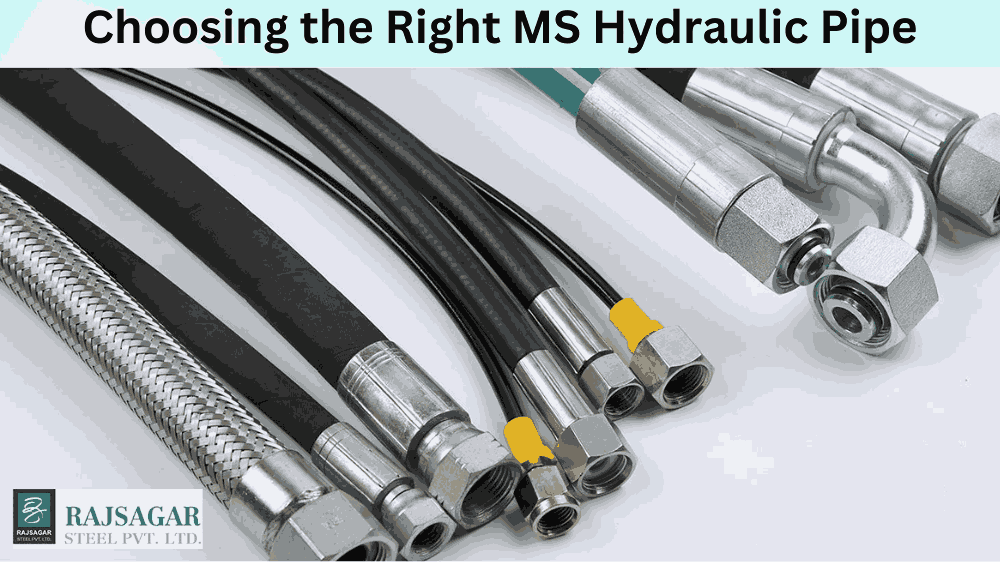Hydraulic systems are widely used in industries to transmit power. The pipes used in hydraulic systems are essential components that determine their efficiency and reliability. Choosing the right hydraulic pipe is crucial to achieving optimal hydraulic system performance. Numerous hydraulic pipes are available in the market, but it can be challenging to determine the best one for your application. This blog post will guide you on choosing the right MS Hydraulic Pipe to ensure your hydraulic system performs well.
What is MS Hydraulic Pipe?
MS Hydraulic Pipe is made of medium-carbon steel for fluid transportation applications such as hydraulic systems. This pipe has various advantages over conventional piping, including increased strength, corrosion resistance, and higher durability – making it an ideal choice for many applications. MS Hydraulic Pipes are available in various sizes and shapes to accommodate almost any hydraulic system. As it provides greater flexibility to the user, it can be easily adjusted or modified with minimal effort and superior pressure ratings up to 1500 psi for longer service life.
Steps to Choose the Right MS Hydraulic Pipe
Understand Your Application’s Requirements
The first step in selecting the right hydraulic pipe is to understand the requirements of your application. Consider pressure, temperature, fluid compatibility, and flow rate. It would be best to consider the environment in which the hydraulic system will operate. This information will guide you on the type of hydraulic pipe to select.
Determine the Material of the Hydraulic Pipe
The most commonly used hydraulic pipe materials are steel, stainless steel, and copper. However, MS hydraulic pipes are also an excellent choice for various applications. MS pipes are affordable, durable, and have high tensile strength. They are also resistant to corrosion and abrasion, making them ideal for hydraulic systems that operate in harsh environments. Consider the material best suits your application, budget, and environmental requirements.
Select the Right Size and Thickness
The size and thickness of the hydraulic pipe should be selected according to the required fluid flow rate and pressure. A pipe that is too thin cannot handle high pressure, while a pipe that’s too thick increases resistance to flow, reducing the system’s efficiency. You should also ensure the pipe size matches the hydraulic system’s fittings.
Check for Accreditation
When selecting an MS hydraulic pipe, ensure it meets the industry standards and certification requirements. Pipes that meet the industry standards will guarantee quality performance and durability. Confirm that the manufacturer has accreditation from recognised organisations such as the American Petroleum Institute (API) or the International Organization for Standardization (ISO).
Consider the Cost
The cost of the hydraulic pipe is a crucial factor to consider when choosing the right one for your application. While MS pipes are affordable, you must ensure that the low cost doesn’t compromise quality or performance. Avoid selecting a hydraulic pipe based on cost without considering technology advancements, performance, and durability in the long run.
Conclusion:
Selecting the right MS hydraulic pipe for your application ensures that your system performs optimally and lasts longer. Consider factors such as application requirements, material, size, and thickness, and ensure that the manufacturer has accreditation from recognised organisations. Choose the best pipe for your application, budget, and environmental requirements. With the right MS hydraulic pipe, your system will operate efficiently and reliably, ensuring your operations run smoothly.

